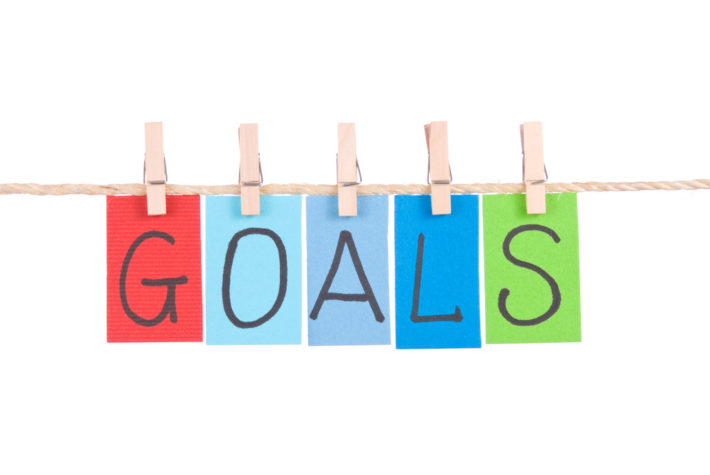
Too many of us wake up each morning, go through the motions day after day, waiting for the day when suddenly our dreams will come true:
“Someday I’m going to get in shape.”
“I’d love to be able to do a pull-up.”
“I’m going to be paying on this student loan until I die.”
While we can come up with any number of excuses as to why we aren’t in shape, can’t do a pull-up, or still owe on a college loan from 20 years ago, so many of our ideas on how we could improve our lives have one thing in common – follow-through. We don’t follow through on our goals.
Think of your goal as a destination you want to visit. You’re hungry, and you want to check out a new restaurant you just read about. With no plan in place and no idea where this new hot spot is located, you could just jump in your car and drive for hours looking for the location, never find it, and eventually give up and grab drive thru from the Taco Bell. You’d head home disappointed from not finding what you set out to discover and feeling crappy for settling for something less than what you truly wanted.
On the other hand, if you know exactly where your this new place is located, you can locate it on the map, and head out with a plan on how to get there. Once you arrive, you can savor your dinner and head home fulfilled having accomplished what you set out to achieve!
In this three-part series, we will examine the following questions:
- Why should I set goals?
- What does a successful goal look like?
- How exactly should I go about creating goals?
While many readers will apply these questions to athletic or performance goals, we will also look into how these apply to all areas of your life: health, financial, family, community, career, etc.
Why should I set goals?
If we are honest with ourselves, most of us get up and go about our days (and weeks/months/years?) in survival mode – we do what we need to in order to get survive the day and survive until tomorrow. But what if we awoke each morning with a plan of how to tackle each day so we not only survive until bedtime, but we make progress towards what matters most to us?
The idea is that with concrete goals and objectives in place, we can live a life of intention. An intentional life is in line with your values, and you never have to question if what you are doing is important to you.
As we prepare to discuss the “what” and “how” of goal-setting in future articles, let’s take a closer look at the “why.” Ask yourself the following questions:
What motivates you?
Don’t think about things like “a drill instructor yelling in my ear” or some music that makes you run faster. Rather, think about what makes you want to live a better life?
If money and time were no object, how would you live your life?
Think about what you’d like to accomplish personally, for your family, in your career, for your health, financially. Look beyond just athletic goals. All of these factors will work together (or against one another, if you’re not careful) as you work to create the best you possible.
What would you like your life to look like in 1 year, 5 years, 10 years?
Be serious and realistic – being a movie star with a billion dollars in the bank isn’t going to likely happen. And, is pursuing that really what will motivate you to get out of bed every day for the next 10 years?
Which goals are the most important to you?
Focus on the goals that mean the most to you – the other less-important goals may need to be modified or eliminated to reach the ones that matter most. If spending time with your kids is the most important thing in your life, a job that has you working 80-100 hours a week is incongruent with family time.
Homework:
Start by spending some time thinking about what is important in your life. Get a notebook and write the name of each sector of your life at the top of each page: Family, Career, Money, Community/Faith, Personal, Health/Athletic, etc. Then, just start brainstorming ideas of things that you’d like to accomplish in each. Don’t be afraid to list things that seem really far out there. If you’ve secretly wished that you could learn to tap dance or play the cello or ride your bike around the Australian continent, list everything you can think of. As you move through this process, you can alter or change anything.
In the next two articles, we’ll look at what types of goals are the best for you and how to write goals that work.
By Coach Julie Kirkpatrick
